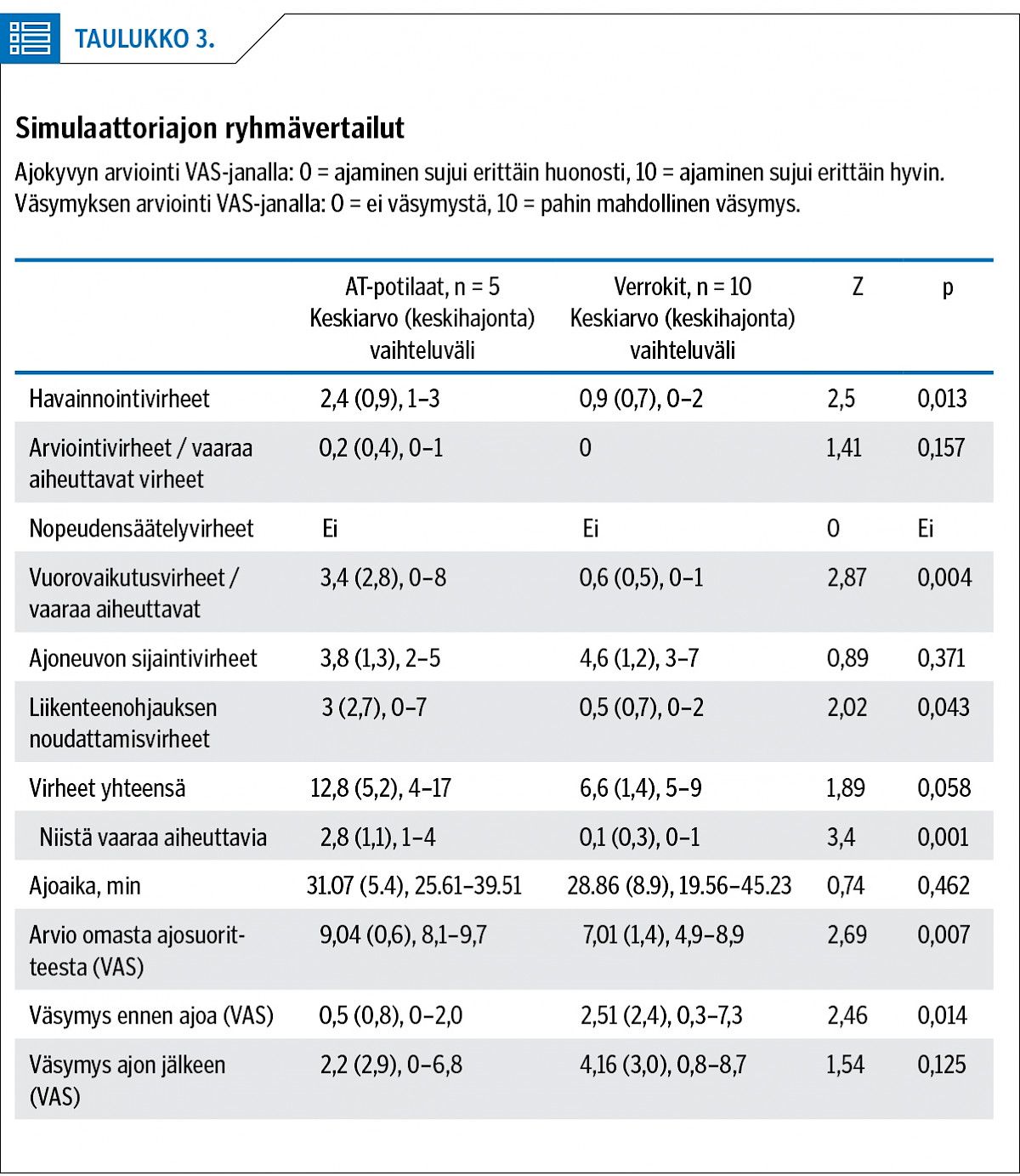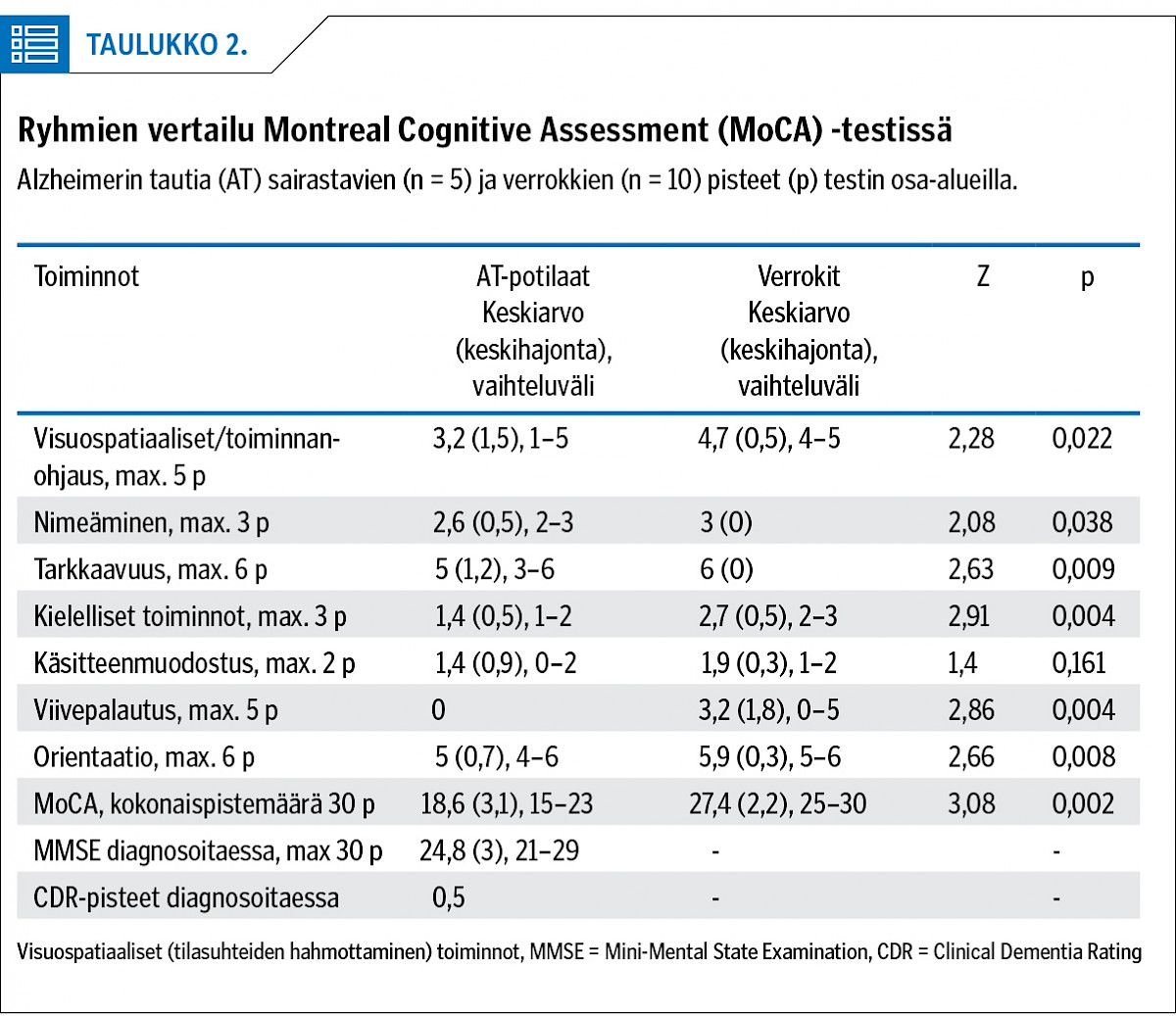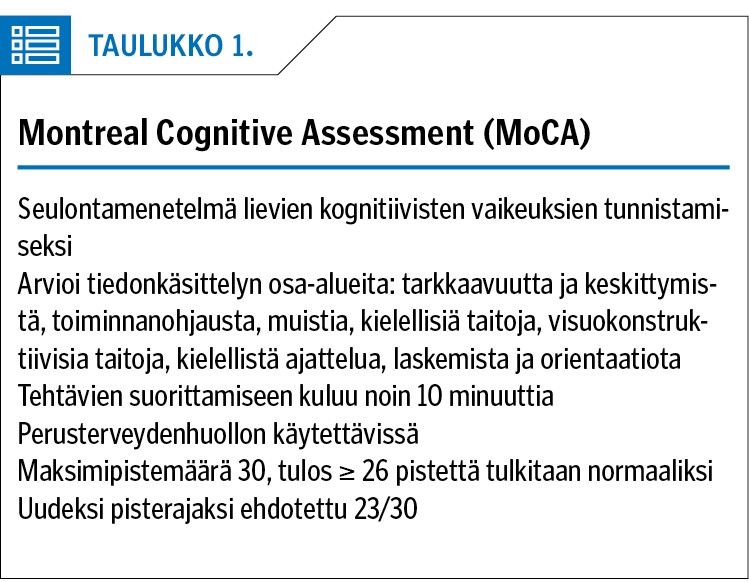The Montreal Cognitive Assessment (MoCA) in assessing driving ability of patients with early Alzheimer’s disease
Background The aim of this study was to evaluate the suitability of the Montreal Cognitive Assessment (MoCA) as a screening tool when evaluating fitness to drive in individuals with early Alzheimer’s disease (AD). The aim was also to evaluate the sensitivity of the MoCA to detect the early cognitive impairments in AD.
Methods Seven individuals with early AD and 17 healthy elderly drivers participated in a driving simulator study consisting of clinical interview, cognitive assessment (MoCA) and simulator drives. After the simulator drives, participants were asked to self-evaluate their driving performance.
Results AD participants performed worse in both the MoCA test and the simulator drive compared to healthy elderly participants. AD participants also overestimated their driving ability. The overall MoCA score in the AD group was 18.6 compared with 27.4 in the control group. During the simulator drive AD participants made almost twice as many driving errors as healthy controls.
Conclusions The MoCA seems to be a sensitive screening tool for detecting cognitive impairments in early AD. Anosognosia and deficits in visuospatial abilities, executive functioning and memory seem to increase the safety risk among AD drivers based on the simulator drive. An MoCA score of 20 or less should raise concerns about driving safety.














